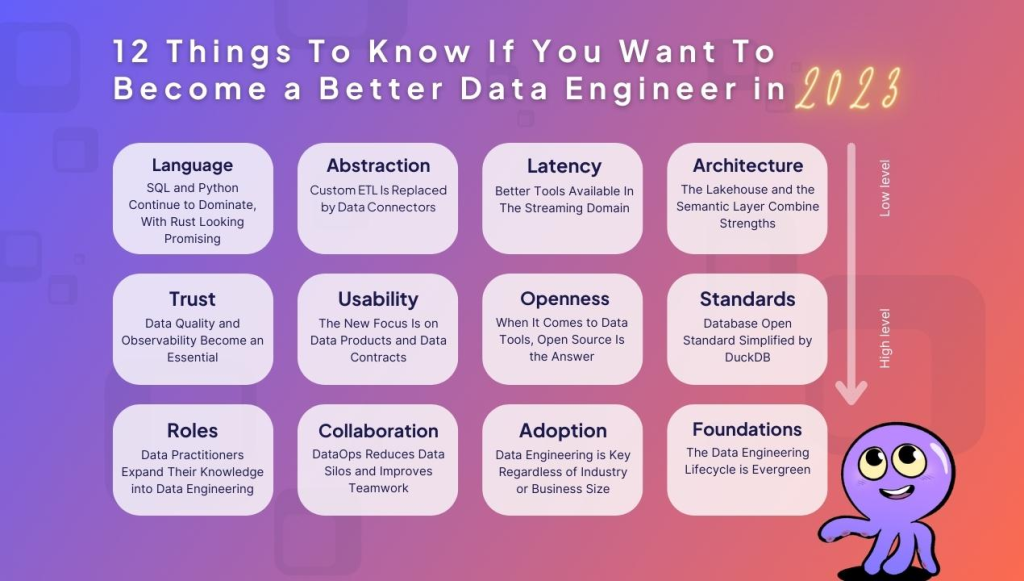
If you’re interested in becoming a DataOps engineer, you’re in the right place! In this article, we’ll explore the skillsets required to become a successful DataOps engineer.
Introduction: What is DataOps?
DataOps is a relatively new concept that brings together data analytics, DevOps, and Agile methodologies to create a streamlined process for managing data. DataOps aims to reduce the time it takes to get from raw data to actionable insights, enabling organizations to make better decisions faster.
Skillset #1: Data Management
As a DataOps engineer, you’ll be responsible for managing data throughout its entire lifecycle. This means you’ll need to have a solid understanding of data architecture, data modeling, and data integration. You’ll also need to be proficient in SQL and have experience working with data warehousing and ETL tools.
Skillset #2: Programming
To be successful in a DataOps role, you’ll need to have strong programming skills. You should be proficient in at least one programming language, such as Python, R, or Java. You should also have experience working with data analysis libraries such as Pandas, NumPy, and SciPy.
Skillset #3: Cloud Computing
In today’s world, most data is stored in the cloud. As a DataOps engineer, you’ll need to be familiar with cloud computing platforms such as AWS, Azure, and Google Cloud Platform. You should also have experience working with cloud-based data storage solutions such as S3, Azure Blob Storage, and Google Cloud Storage.
Skillset #4: Automation
Automation is a key component of DataOps. You’ll need to have experience working with automation tools such as Ansible, Puppet, and Chef. You should also be proficient in scripting languages such as Bash and PowerShell.

Skillset #5: DevOps
As a DataOps engineer, you’ll be working closely with DevOps teams. You should have a solid understanding of Agile methodologies and the DevOps toolchain. You should also be proficient in version control tools such as Git and have experience working with continuous integration and continuous deployment tools such as Jenkins, Travis CI, and CircleCI.
Skillset #6: Communication
Finally, as a DataOps engineer, you’ll be working with a variety of stakeholders, including data scientists, business analysts, and IT professionals. You’ll need to be an effective communicator and be able to explain complex technical concepts in layman’s terms.
Conclusion
Becoming a DataOps engineer requires a diverse set of skills. You’ll need to be proficient in data management, programming, cloud computing, automation, DevOps, and communication. But with the right training and experience, you can develop these skills and become a valuable member of any data-driven organization.